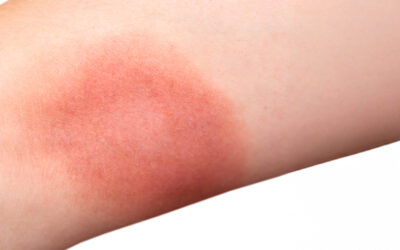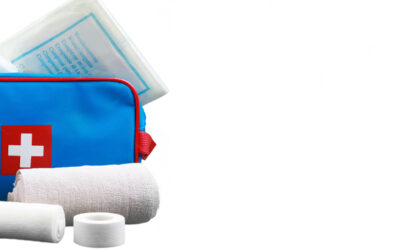Health at All Ages: Common Health Concerns for Men
When asked, ‘What are the key health issues faced by Australian men?’ I have a mixed reaction. Firstly, how good that men’s health is front of mind, and secondly, I wish men would ask me this question as opposed to their partners, daughters or mothers.
Generally, a man rarely considers his health until he becomes unwell and he is then mystified as to the possible cause(s). In his mind, health is the absence of illness and the idea that his health might be the result of his lifestyle, habits and genetics is not an easy bridge to cross.
What are the key health issues faced by Australian men? For a clue, we can look at the statistics for male causes of death – according to the Australian Institute of Health and Welfare – boys from 1 to 14 years old are most likely to die from a vehicular accident. From 15-44 the leading cause of death is suicide. From 45 years of age onwards it is coronary heart disease. In sequence: misadventure, misunderstanding, misbehaviour.
Staying Healthy at Any Age
The strategies to keep boys and men alive and healthy change across their life stage. For the boys full of adventure, fun and curiosity we need to instil an appreciation of danger, teach them how to be safe when cycling, cross a road, getting off the school bus, riding a quad bike (if unavoidable), use their seatbelts, say no in potentially unsafe situations and to be patient if things are going too slow for them. Education programs, such as Independence Australia’s own SpinChat program are one way in which we can teach young people to consider risks that they may face.
Men and Mental Health
From 14 to 44 year, a boy transitions into manhood, the workforce, and other responsibilities. Puberty, testosterone, sex interest and orientation, advanced learning, career options and advancement, starting a family, moving out of the family home, access to alcohol and recreational drugs, driving, peer pressure to be ‘man’ and take risks, successes, failures, restarts and more. Many of these situations are stressful, especially when they pile up on top of each other. Unfortunately, too many young men don’t have the skills or support to navigate these challenges and may seek a permanent solution (suicide) for what is probably only a temporary problem. Social and family awareness and support can make the difference. The ‘Are U OK?’ program in Australia prompts us all to check in on our mates, families and colleagues in the hope of reducing these distressing outcomes.
Helping teenage boys navigate bullying, isolation, low achievement, high expectations, new skills and spaces is important. Whether you are a parent, family member, employer, teacher, sports coach or mate your awareness and nudging toward smarter decision making through demonstration and advice is your duty of care. Perhaps extending to ensuring the young man seeks professional help or mentorship to balance his ship.

Early Life Decisions Can Impact Later Health
Decisions and behaviours made in early adulthood lays the base for a man’s health in later life. Choices regarding food, drink, work pressure, aspiration and ambition, family duty, relationship maintenance and drugs can undermine their capacity to regulate, regenerate and refresh. The resulting imbalances can predispose to physical illness (e.g. diabetes, cardiovascular disease, cerebrovascular disease, autoimmune diseases and cancer) and/or mental illness (e.g. depression, anxiety, psychoses). These illnesses are the culmination of internal and external stresses on a man disabling or overwhelming his inbuilt protection. For physical illness, his defence is a healthy and resilient immune system, for mental illness it is his coping skills and support network.
You can support your immune system using a range of lifestyle behaviours based on smart choices. For example, avoiding foods that trigger inflammation and replace them with foods that reduce it. More vegetables, fruit, water, nuts, grains, fish and chicken as a proportion of your diet and less red meat, fried food, pre-prepared food, rich sauces, alcohol, cheese and simple carbohydrates (sugar, white bread, pasta and rice).
How can Exercise Influence Health Outcomes?
Physical activity can also fortify your immune system provided you don’t overdo it. Moderate intensity exercise done regularly (e.g. walking, cycling, yard work, circuit training) combined with adequate recovery, quality sleep, meditation or having fun will put your health to a good use.
Maintaining an active lifestyle into the older years will maintain heart, brain and lung function. Ongoing sensible eating will protect the gut from damage and cancer. Being productive, content, socially connected and happy will help with mental health well into retirement.
Strategies for Discussing Health with Men
As a rule, men don’t appreciate being supervised or reminded about their health behaviours. Some consider this nagging, even if it is from their doctor, which is the ridiculous consequence of thinking you are invincible. Perhaps the best his support network can do is to lead by example and to monitor his ‘performance’ to identify early indicators of deterioration. Changes to look for include increasing girth, poor quality or quantity of sleep, reduced physical activity levels, shortness of breath on exertion, reduced interest in social or other fun activities, persistent pain, urinary frequency, mood changes (especially anger), increased alcohol consumption, and worsening memory. None of these is ‘just getting older’.
The key health issue for men in Australia might just be their attitude to taking care of themselves. Paradoxically they think a disregard for their own health is a masculine trait when it is actually a weakness. Perhaps the COVID pandemic of 2020 might help them take a fresh perspective.
A/Prof Craig Allingham
Men’s Health Physiotherapist
More health advice
View our wide range of health advice, tips and recommendations by visiting our health articles or checking out our top health articles below.
Optimising Bladder and Bowel Health Through Diet and Hydration
Optimising Bladder and Bowel Health Through Diet and HydrationBy: Jane Clarke07 May 2025EssentialsBladder and bowel dysfunction can result from a wide range of contributing factors, including diet and fluid intake. Even when the primary cause lies...
How to Treat and Prevent Scarring
First Aid for Burns:How to Treat and Prevent ScarringBy: Tracey Aldis29 April 2025EssentialsBurns are common injuries, especially in the kitchen.1 Many burns are not serious, and taking quick action can make a big difference. This guide covers the...
How to create a home wound care kit: step-by-step guide
How to create a home wound care kit: step-by-step guideBy: Tracey Aldis29 April 2025EssentialsMost injuries occur at home1, but minor wounds usually do not need medical attention. Having a wound care kit for home use allows you to treat small...
This article is sponsored by Independence Australia, a social enterprise that provides choices for people living with a disability or other personal need, enabling them to regain and retain their independence within a supportive community.
If you would like to support the valuable work we do, you can help us to provide choice for people living with a disability or other personal need by Shopping online with us or Making a donation.



